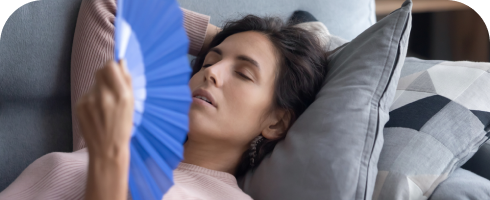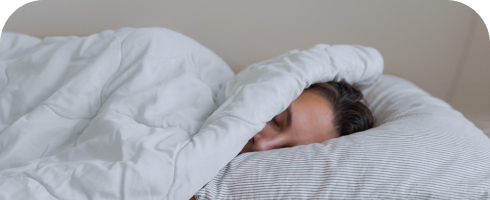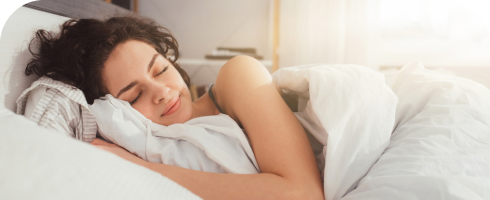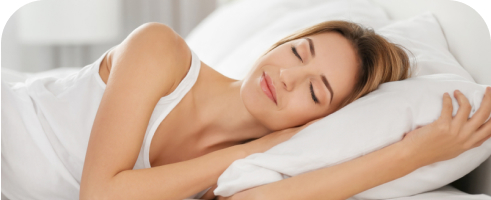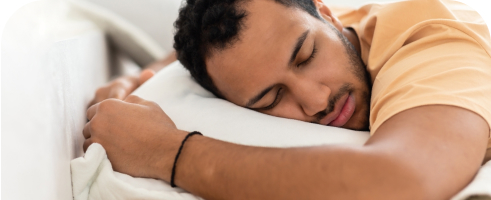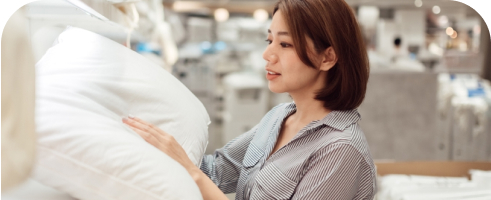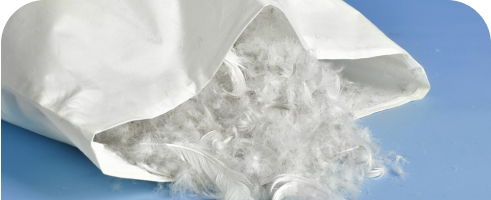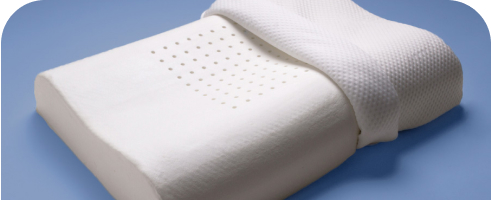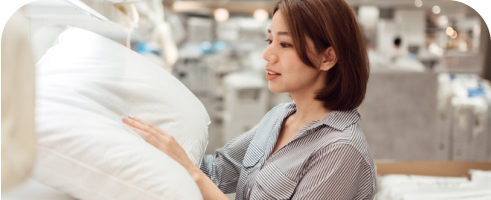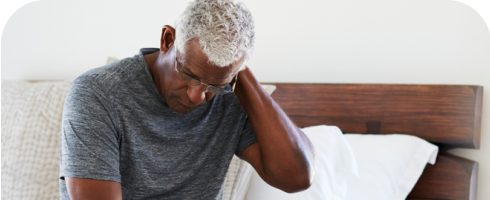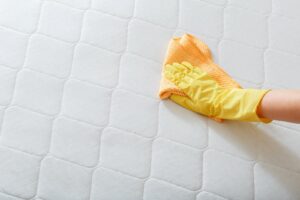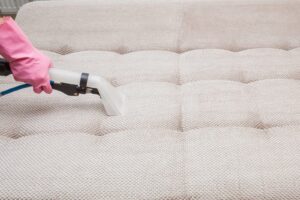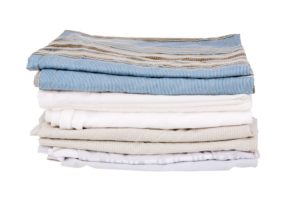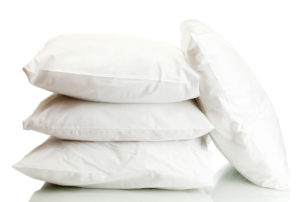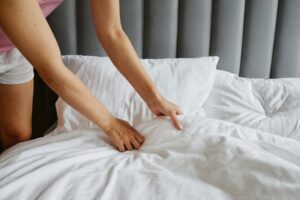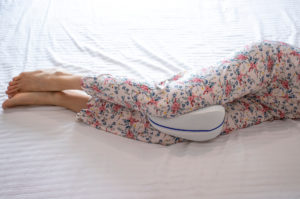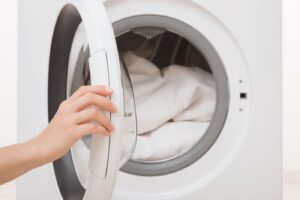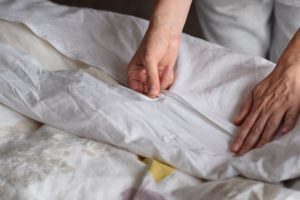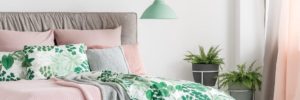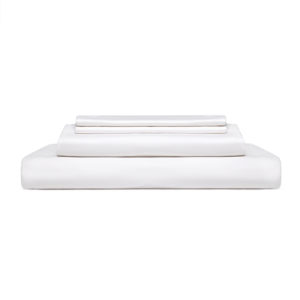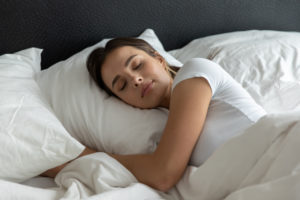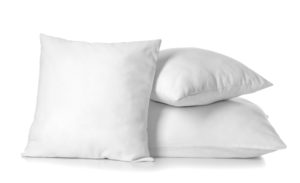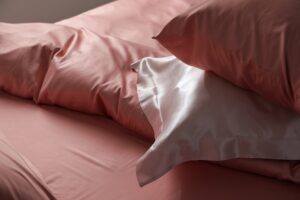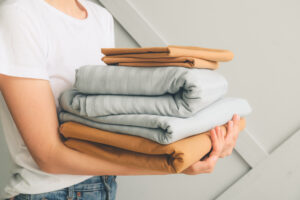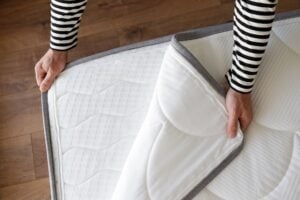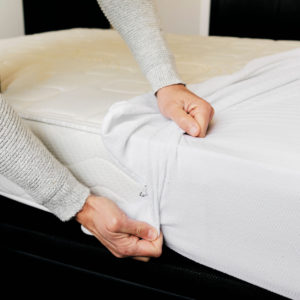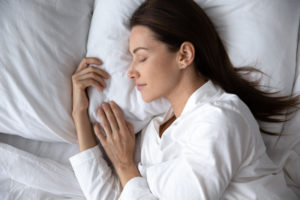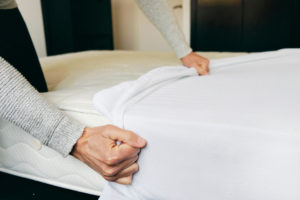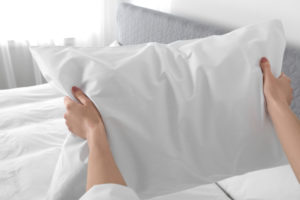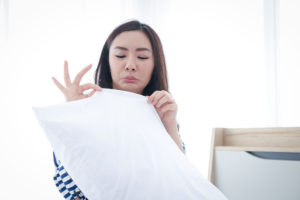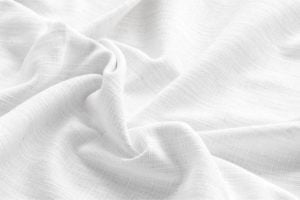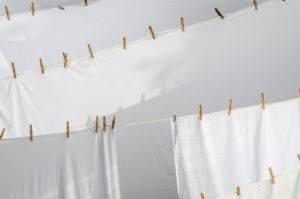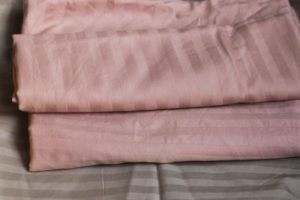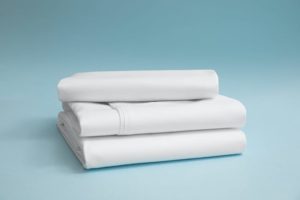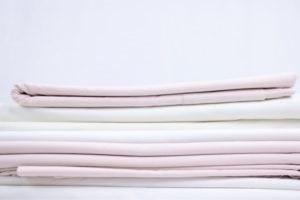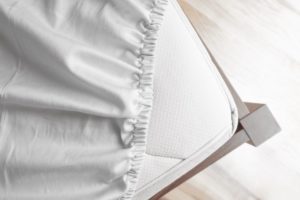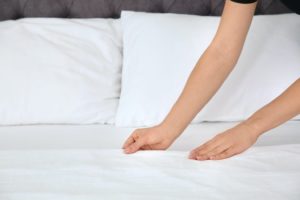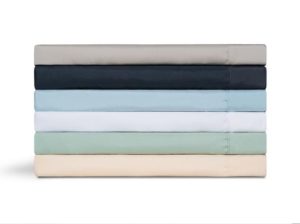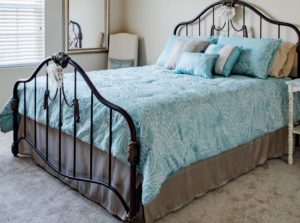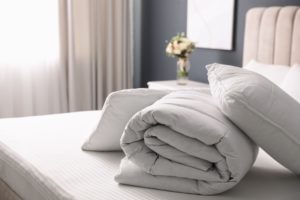Sleeping Without a Pillow
Designed to promote healthy alignment of the head, neck, and spine, most people consider pillows to be an essential part of their sleep routine. However, some people claim that sleeping without a pillow may prevent wrinkles, improve hair texture, and even cure neck pain. While research is still limited, some studies suggest that sleeping without a pillow does have its merits.
Before you eliminate the pillow from your sleep routine, it’s important to note that not everyone benefits from sleeping without a pillow. Certain positions are better suited to pillowless sleep than others, and it’s best to consult with a healthcare professional before making major changes to your sleep setup.
We’ll discuss who stands to gain the most advantages from sleeping without a pillow, and share advice for transitioning to a flat surface when appropriate.
Find a Pillow That’s Right for You
Looking for a new pillow? Take the quiz below to find the perfect pillow for your needs.
Trouble sleeping?
Answer these 5 easy questions to discover your perfect pillow

Trouble sleeping?
Answer these 5 easy questions to discover your perfect pillow
What position do you sleep in?
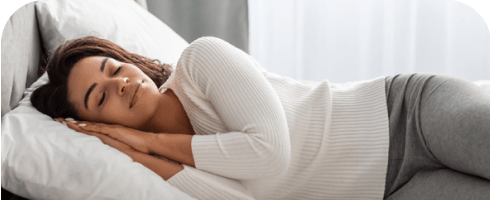
Side
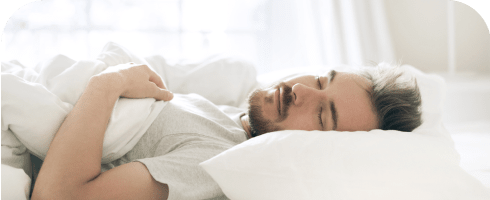
Back
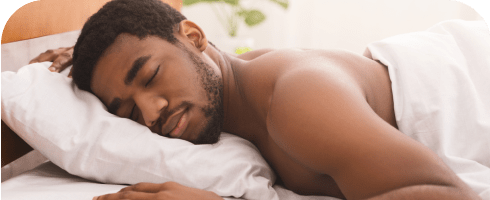
Stomach
Potential Benefits of Sleeping Without a Pillow
While research is limited, anecdotal reports show that sleeping without a pillow can help reduce neck and back pain for some sleepers. Stomach sleepers are generally best suited for going pillowless, because the lower angle of the neck encourages better spinal alignment in this position.
Some individuals also assert that sleeping without a pillow can be beneficial for skin and hair, but more clinical studies are needed to evaluate these claims.
Effects on Posture
Each sleep position affects posture differently, which is why a pillow may not be necessary for certain sleeping positions.
Stomach sleeping requires sleepers to turn the head to one side, placing stress on the neck. Adding a pillow risks putting the neck at an even sharper angle, which is why many stomach sleepers feel comfortable sleeping without a pillow.
Side and back sleepers usually require a pillow to maintain proper spinal alignment. Side sleeping leaves the largest gap between the head and the pillow. Accordingly, this position tends to require a higher loft pillow to help keep the head, neck, and spine aligned and prevent tension in the shoulders.
Back sleeping allows the spine to settle into place and puts less pressure on the neck, but it does leave a small gap between your neck and the mattress. A medium loft pillow usually provides the right level of elevation when sleeping on your back.

Effects on Neck and Back Pain
Spending prolonged periods in the same position during sleep can place stress on certain parts of the body, such as the back and neck. Pillows are designed to minimize this stress by supporting the head at a comfortable level, helping take pressure off the cervical area and straighten out the spine.
However, in some cases, a pillow may have the opposite effect. Many stomach sleepers experience neck and back pain relief from not using a pillow, as the mattress provides a flat surface that helps promote spinal alignment when lying face-down.
More rarely, back sleepers using a plusher mattress may find that the mattress already allows the body to settle into a comfortable position, with the head and neck sitting higher than the weight-bearing midsection. In this case, adding a pillow may tilt the head too far upwards, adding stress to the neck and the upper back.
Effects on Skin and Hair
Research is still in the early stages, but some studies suggest that there is a relationship between pillows and wrinkle formation. A pillow that presses directly on your face may cause more skin impressions than lying on a bare mattress, which is less likely to conform as closely. Of course, sleeping on your back is the most effective way to prevent wrinkles, since your face comes into minimal contact with a pillow or mattress. If you do use a pillow, frequently washing the pillowcase may help reduce acne.
There are also theories that pillows may be damaging to hair. Supporters of these theories reason that cotton pillowcases, in particular, create more friction and absorb oils that are meant to protect the hair. This might be more relevant for people who move frequently in their sleep.
So far, there is no research to support the correlation between pillows and hair health. However, if you believe your pillow might be contributing to dry, frizzy hair or knots, switching to a smoother silk pillowcase may help alleviate these symptoms without the need to change your sleeping style.
Potential Drawbacks of Sleeping Without a Pillow
Clinical studies are lacking when it comes to the advantages and disadvantages of sleeping without a pillow, but there may be some drawbacks to consider before discarding your pillow. Pillows may be helpful for people with conditions such as heartburn or obstructive sleep apnea. They also help many sleepers maintain a healthier sleep posture and reduce back and neck pain.
Negative Effects on Posture
For most sleepers, omitting the pillow is likely to have detrimental effects on sleep posture. When a back sleeper lies on a flat surface, the head and neck may fall into a downward tilt, leading to pressure in the neck. Similarly, a side sleeper not using a pillow can overextend their neck, which makes maintaining neutral spine alignment nearly impossible.
The exception is stomach sleepers, for whom sleeping with a very thin pillow or none at all can level the head and neck with the rest of the spine, helping to reduce pain and tension.
Negative Effects on Neck and Back Pain
Without a pillow to support the head, side and back sleepers may experience stiffness or soreness in the lumbar or cervical spine. Referred neck pain from not using a pillow may also contribute to tension headaches.
Even when stomach sleepers don’t use a pillow, neck pain isn’t necessarily unavoidable. Turning your head to the side can create muscle stiffness with or without a pillow.
How to Start Sleeping Without a Pillow
The thought of suddenly sleeping on a flat surface may seem intimidating, but there are ways to wean yourself off of a pillow to make adjusting easier:
- Take Baby Steps: Starting with a thin pillow or folded blanket can give your body time to adapt to a flatter surface.
- Evaluate Your Sleep Setup: Make sure you have a compatible mattress for your sleep style and body size. A good pillow can’t compensate for a mattress that isn’t able to support good posture, but a suitable mattress can make sleeping without a pillow much more comfortable and sustainable.
- Consider Body Pillows: Stomach sleepers often benefit from placing a thin pillow beneath their hips. The pillow lifts the midsection and helps encourage a straighter spine.
Choosing the Right Pillow
If you find yourself waking up stiff and sore and you suspect your pillow might be to blame, the first step is to determine whether you’re using the right model for your sleep style. It may be the case that choosing another style of pillow is a better solution for you than going with no pillow at all. If your pillow is more than a few years old, replacing it with a newer model may bring back the support you need.
Side Sleepers
Side sleepers do best with a relatively firm, thick pillow that can fill the gap between the neck and shoulders. A pillow that is too thin may not keep the neck and head level with the spine, and a very thick pillow can be just as problematic if it tilts the head up at a very high angle. A second, thinner pillow between the knees may relieve back pain.
Some side sleepers prefer malleable pillows that can be folded in half for a higher loft. Adjustable pillows made from materials such as shredded memory foam or buckwheat are also suitable, as sleepers can remove or add fill according to their height preference.
Back Sleepers
For back sleepers, a medium-high pillow helps keep the neck on the same plane as the spine. A pillow that is too thick can cause the neck to curve forward too much. Medium firm designs made from memory foam or latex are often a good fit, because they keep the head from dipping too low. Another option is to use a cervical pillow or place a rolled towel under the neck to fill in this larger gap.
Some back sleepers find that placing a thin pillow below their knees or lower back can help ease pressure on the lumbar spine.
Stomach Sleepers
Stomach sleepers who aren’t prepared to sleep pillowless may find that a soft, low-loft pillow design can facilitate healthy alignment. Plusher models made from down or down alternative fibers typically allow the head to rest closer to the mattress, helping to reduce neck strain. By contrast, higher or firmer pillows elevate the head and neck at an awkward angle.
Combination sleepers may opt for a pillow that combines two styles in one, such as a contoured pillow with higher and lower areas for side and back sleeping.

Still have questions? Ask our community!
Join our Sleep Care Community — a trusted hub of sleep health professionals, product specialists, and people just like you. Whether you need expert sleep advice for your insomnia or you’re searching for the perfect mattress, we’ve got you covered. Get personalized guidance from the experts who know sleep best.


